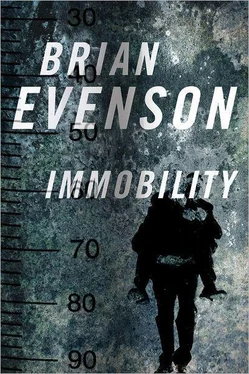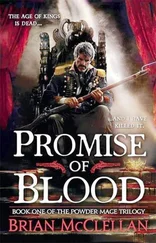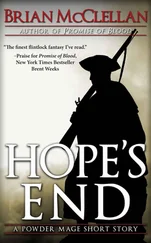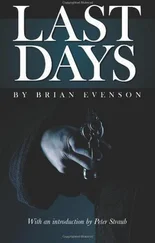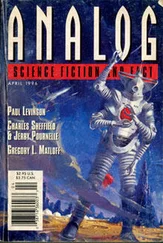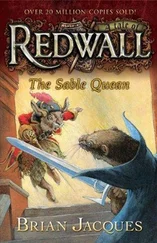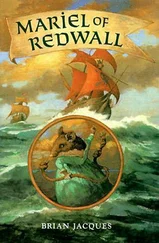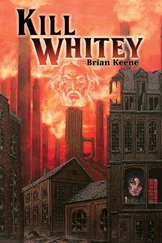“What are you, a libertarian?” asked Horkai.
“No,” said Rykte.
“An anarchist?”
“Who isn’t these days?” asked Rykte. “But no, no more so than anybody else.”
Horkai looked at him a long time. “You really think humanity should die out?”
“Objectively, yes,” said Rykte. “I’ve thought about it and thought about it, and rationally it seems the right thing. If we want anything at all to go on, humanity should die out.” He turned to Horkai and smiled. “But when I think about it subjectively, it doesn’t seem so clear cut.”
“No?”
“No. So I do nothing. I neither help humanity along toward its own extinction nor do I prevent that extinction from happening. I don’t slaughter everyone I meet, don’t use well-placed grenades to open the few remaining shelters to the poisons outside. But neither do I help them. What does that make me? Ineffectual? Uninvolved?”
“Lukewarm,” said Horkai.
Rykte smiled. “So then because thou art lukewarm,” he said, “and neither hot nor cold, I will spew thee out of my mouth.”
“I’ve heard that before,” said Horkai.
“Of course you have,” said Rykte. “It’s from the Bible.”
“The Bible,” said Horkai. “Burn that as well?” he asked.
“Of course,” said Rykte, smiling. “It’s the cause of more deaths than any other book, including Mein Kampf. Better if it had never been written.” The smile faded from his face. He turned to Horkai, his eyes hard and serious. “But I guess it’s different for you,” he said. “You’re not exactly lukewarm, are you.”
Horkai didn’t say anything. They just stood there staring at each other until Rykte clapped his hand down on his shoulder. “Come on,” he said. “There’s something else I want to show you.”
* * *
THEY FOLLOWED THE STREAM to where it came out of the pipe and then crossed over the ground behind, Rykte helping him. He heard the noise long before he could figure out where it was coming from, a slow, low droning. He was sweating now, the soreness in his hands becoming blisters, but his legs were already a little stronger, a little more stable.
They traveled up the alley and to the fence in back of another house. Rykte approached the middle of the fence and felt along the boards until one came off in his hands. The ones just to one side of it came off just as easily. He stepped through, gestured to Horkai to follow him.
The noise grew stronger as they approached the house, growing very loud once he opened the door. They went in; then Rykte came close, spoke into Horkai’s ear.
“Leave your crutches against the wall,” he said. “I’ll carry you the rest of the way.”
He put the crutches against the wall, leaning heavily on Rykte. Bending down and pulling him up into his arms, grunting a little, Rykte carried him through the house, down the stairs to the cellar.
The noise was deafening once they were on the stairs. Horkai reached out and touched the wall, felt the vibration. They kept going down, the cellar coming slowly into view.
It was filled with a series of gas-powered generators, perhaps a dozen in all. They were attached by transparent plastic tubes to a water tank in the corner, but Horkai could tell by the color of the fluid in the tubes that it wasn’t full of water. The generators were all circuited up to a central converter, which in turn fed their current into a large black cable, which snaked across the floor to a storage tank.
Rykte moved toward it. For a brief terrifying moment, Horkai had the impression that he was planning to put him in it. Instead, he held him over it, mouthed at him to look down.
Horkai did. Expecting to see a stored body, he was surprised when he discovered that the pod was empty, and was again filled with the suspicion that it might be for him.
But it wasn’t empty, he realized as he continued to look. There was no body there, but there was still something. A small cylinder with red writing on its side.
* * *
“I COULD HAVE DESTROYED IT,” said Rykte a few minutes later, when Horkai was back on his crutches and they were moving back to Rykte’s house. “But I didn’t. Instead I froze it. That’s what I’ve come to see my role as, at least in your case. I won’t make a decision about it, but I’ve preserved your right to make a choice.”
He reached out and touched Horkai lightly on the shoulder. “It’s been opened. It’s been thawed and refrozen. The contents may be damaged,” he said. “It may not do any good to give it to whoever you were going to give it to. But then again, it might do a great deal of good, might even allow them a new, fresh start, another generation. You can let humanity go the way of all flesh to extinction, or you can try to help it to keep limping on. So now, what, if anything, will you do?”
“Is it really that important?” Horkai asked. “Can grain really make the difference?”
“Grain?” said Rykte incredulously. He laughed. “There’s not grain in there,” he said. “Why did you think it was grain?”
“Rasmus told…,” he started to say. And then he stopped. Sort of, Rasmus had said, something like that, when he’d asked if it was grain, or wheat rather. What was the word Rasmus had used? He thought, tried to bring it back, and failed. “If it’s not grain,” he asked, “then what is it?”
“Fertilized human eggs,” said Rykte. “Frozen embryos, ready to be unfrozen and implanted. Humans can no longer reproduce. They’ve been trying for years. They’ve been rendered infertile. When I found you, you were carrying the possibility of dozens of humans with you, their whole next generation.”
Seed, thought Horkai. That was the word Rasmus had used. Seed. He’d stopped moving, was standing in the backyard motionless.
“I’ll ask again,” said Rykte, “now that you know what you’re facing. You may have the key to their continuation. You can give it to them, or you can destroy it. Or you can just wait, do nothing. So many possibilities. What, if anything, will you do?”
WHAT WILL I DO? he wondered later, alone in the room he had already started thinking about as his room. We name things, he imagined Rykte saying, and then think this gives us the right to claim them. The walk had worn him out. His sides felt bruised, his hands and arms still tingled, and the sensations coming through his feet and legs were broken, irregular. It came and went in waves, getting slowly stronger all the time. What will I do? he wondered again, and thought of Rasmus, not lying exactly, but very far from telling him the whole truth. He thought of the keepers, their singleness of purpose and the almost blithe insouciance that he had seen in Mahonri, of the way they seemed able to forgive almost anything if they could get one more person (if person was still the right word) to join their cause.
He thought of Rykte and the way he had stepped out of things, the kind of solitary life he seemed to lead on the edge of things, a life of apparent profound disengagement. Was it a life he could live as well?
And then he thought of the technician, the look of fear in his eyes when Horkai had almost by reflex started to strangle him. He thought of the several dozen people surrounding Rasmus, dirty and pale and malnourished, none of them much under forty, a whole generation missing beneath them, if not two. He thought of Qanik, comfortable with himself and his role as a mule, stolid and unshiftable in his beliefs. And of Qatik, much less so, a little more acerbic, beginning to be infected by doubt. And of the promise he had made to Qatik before he died.
Читать дальше
